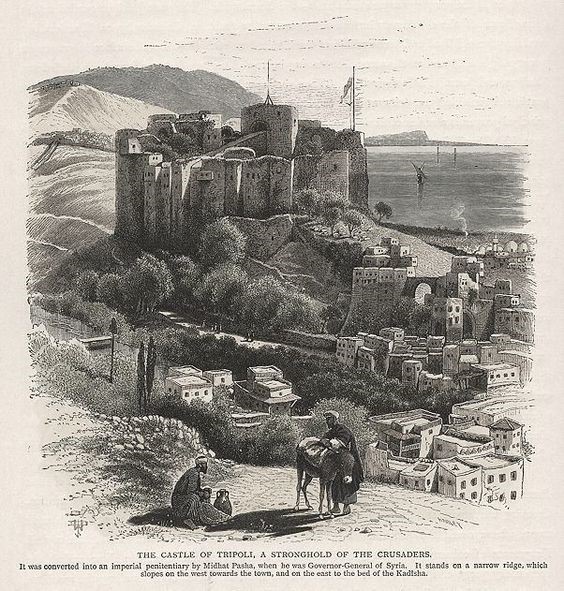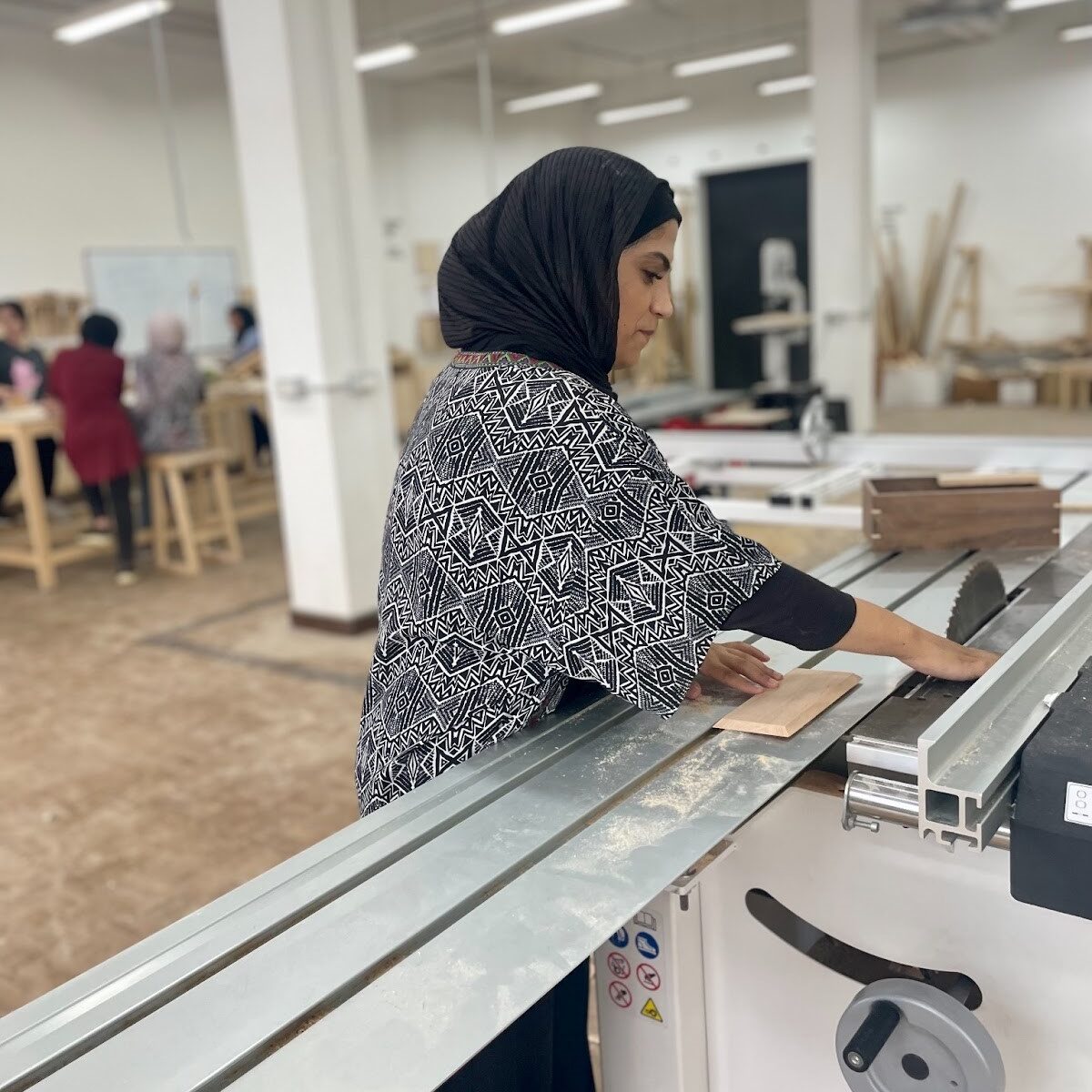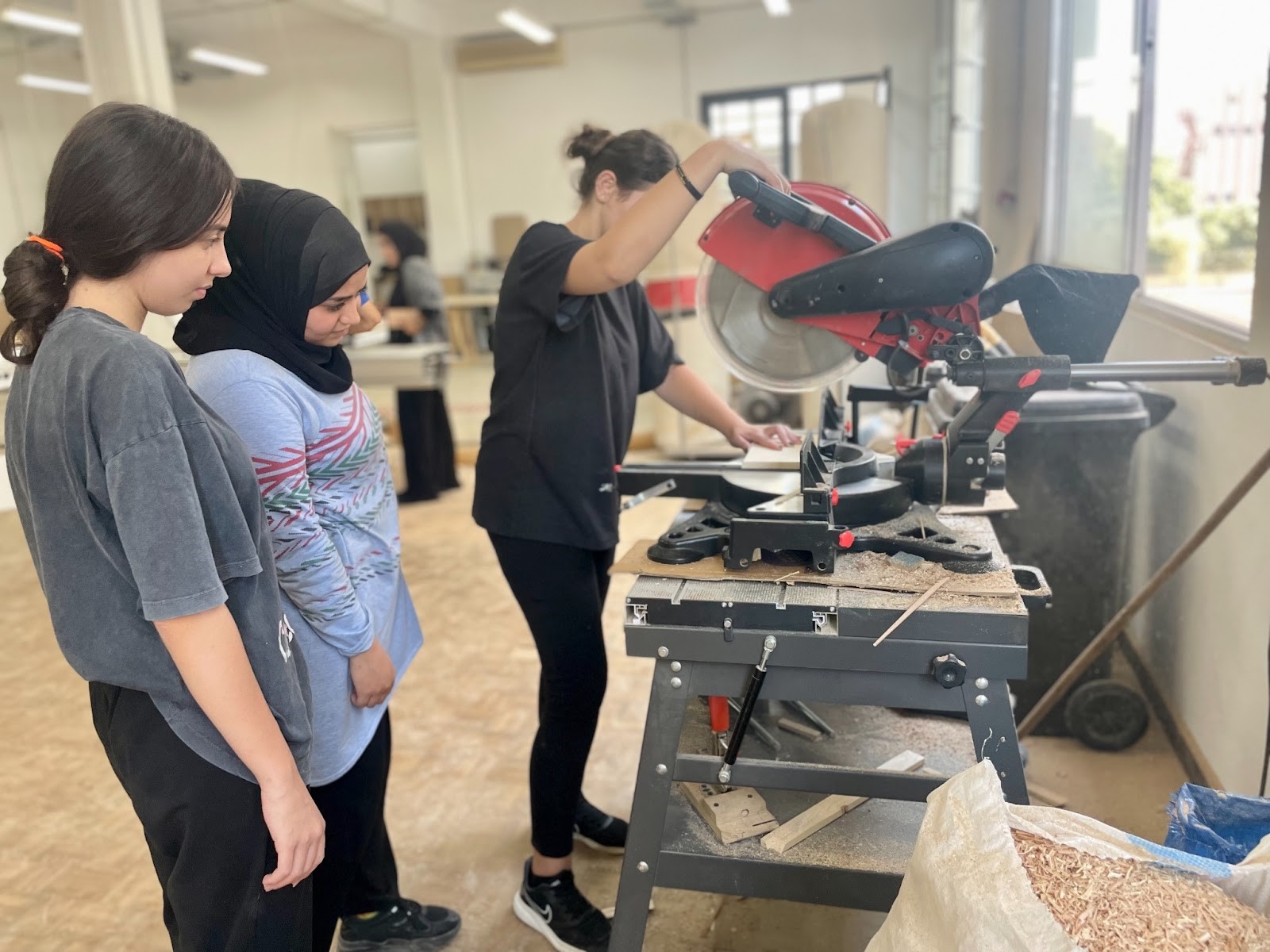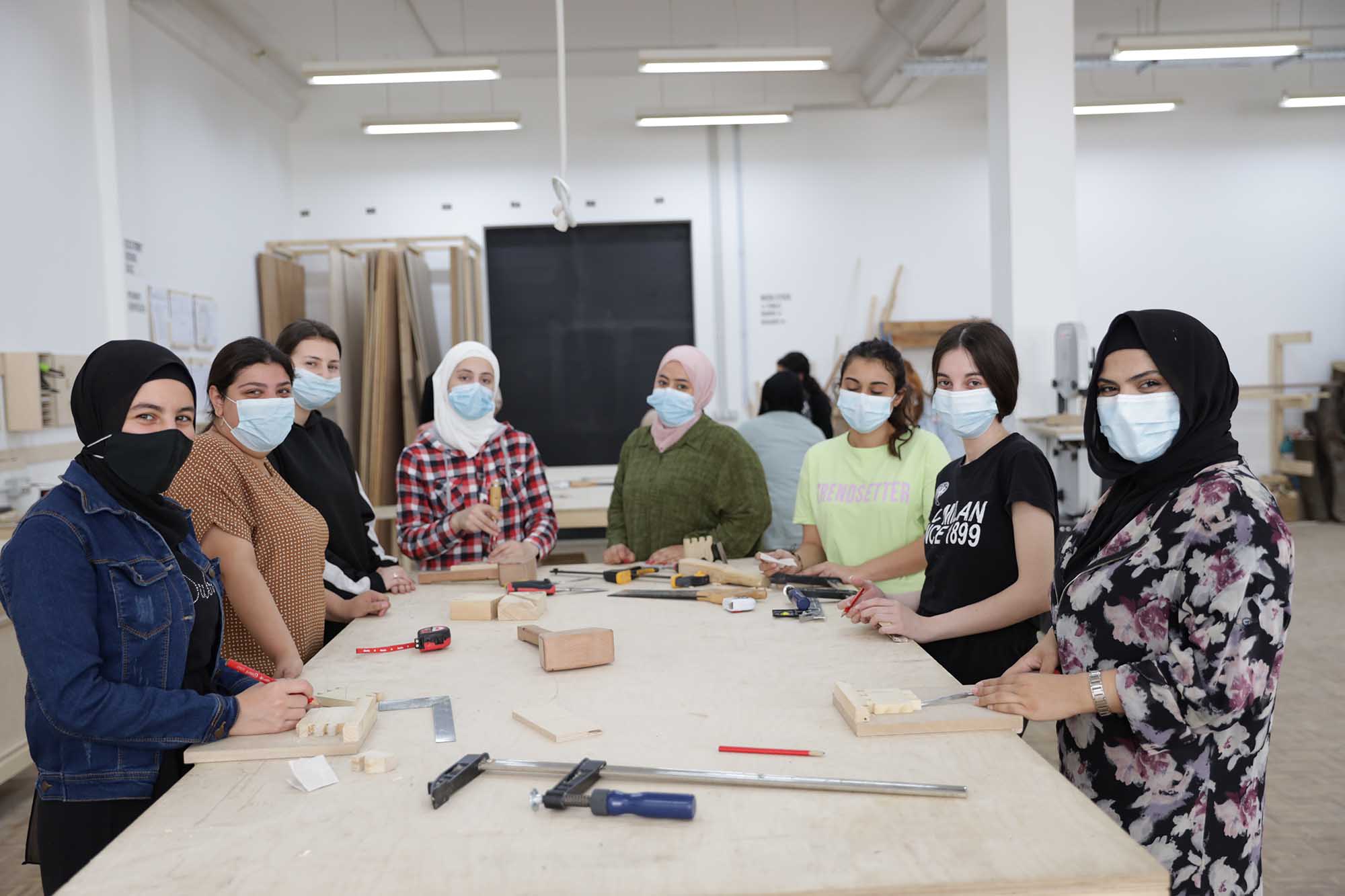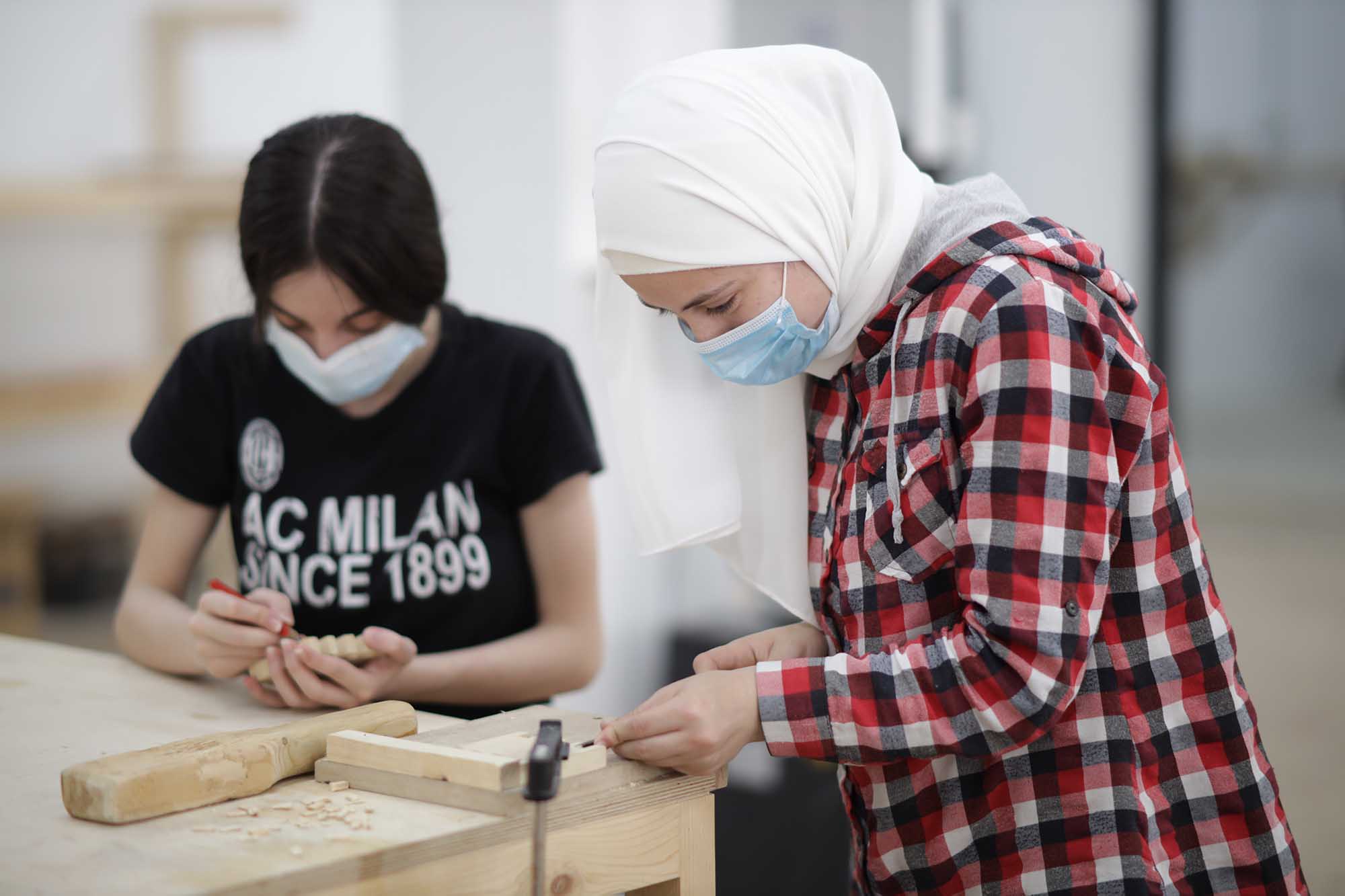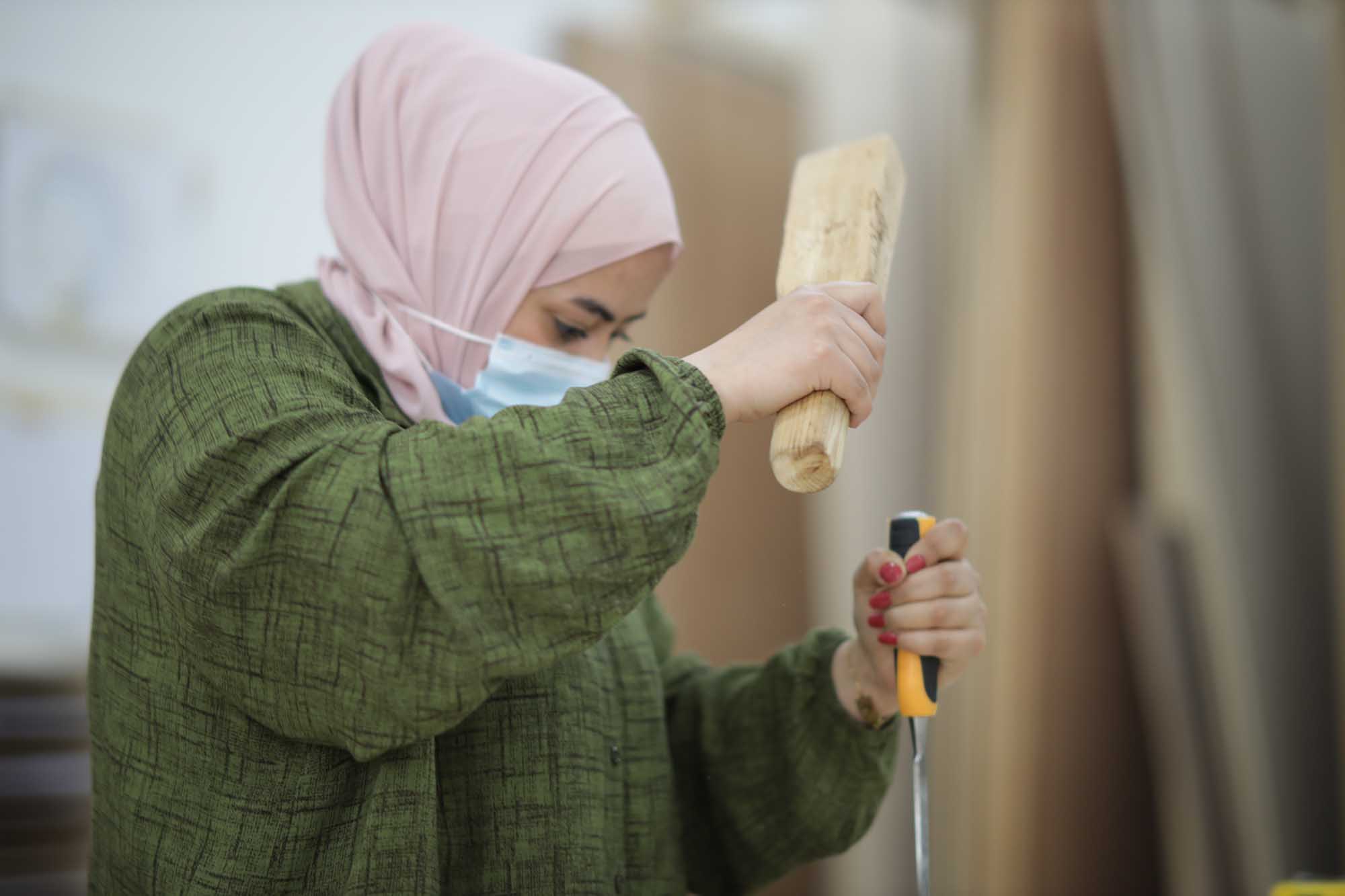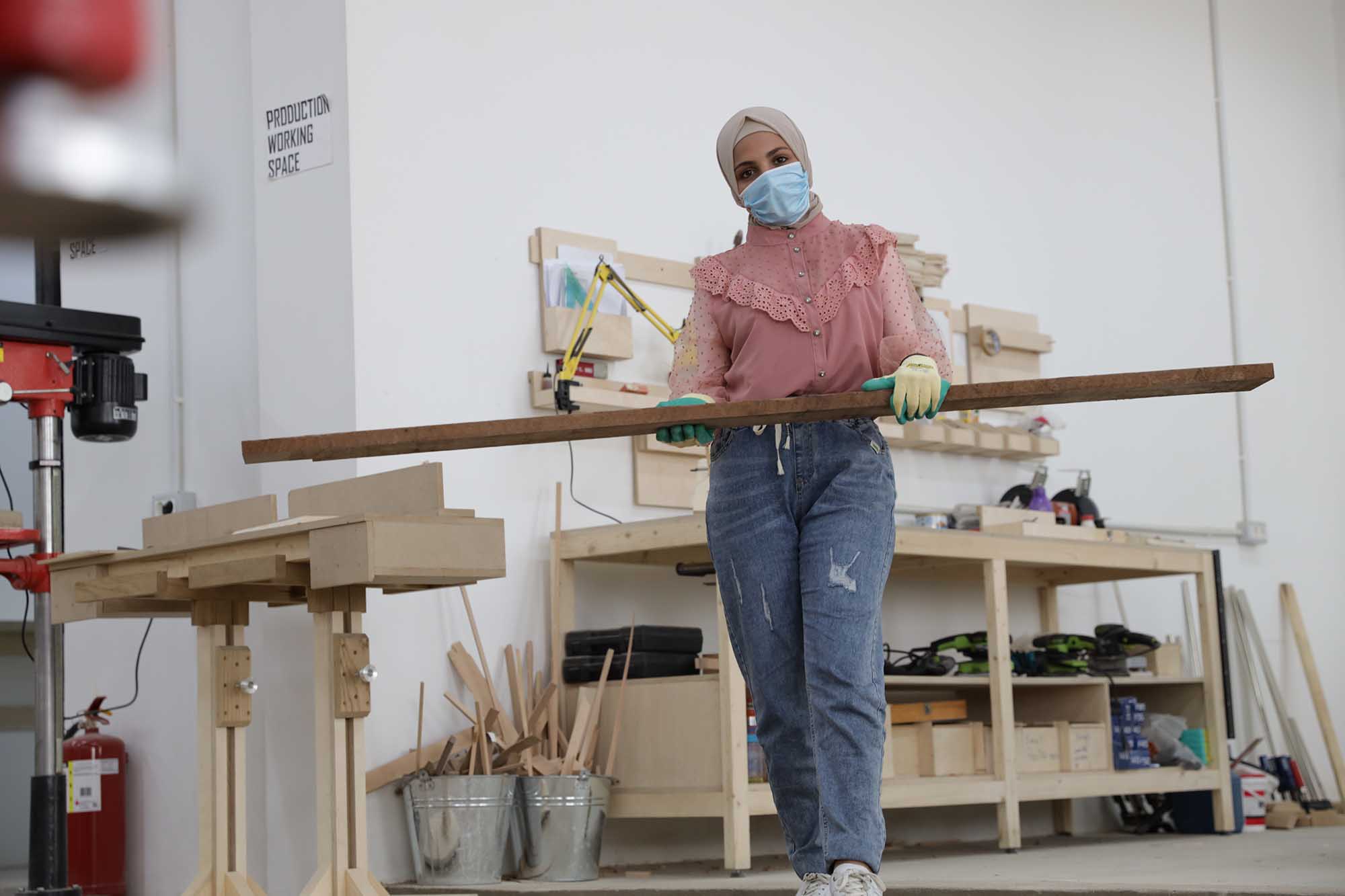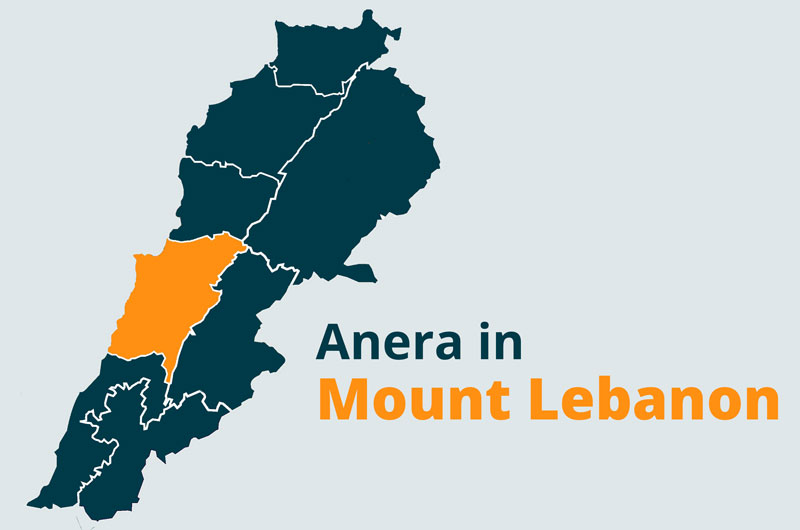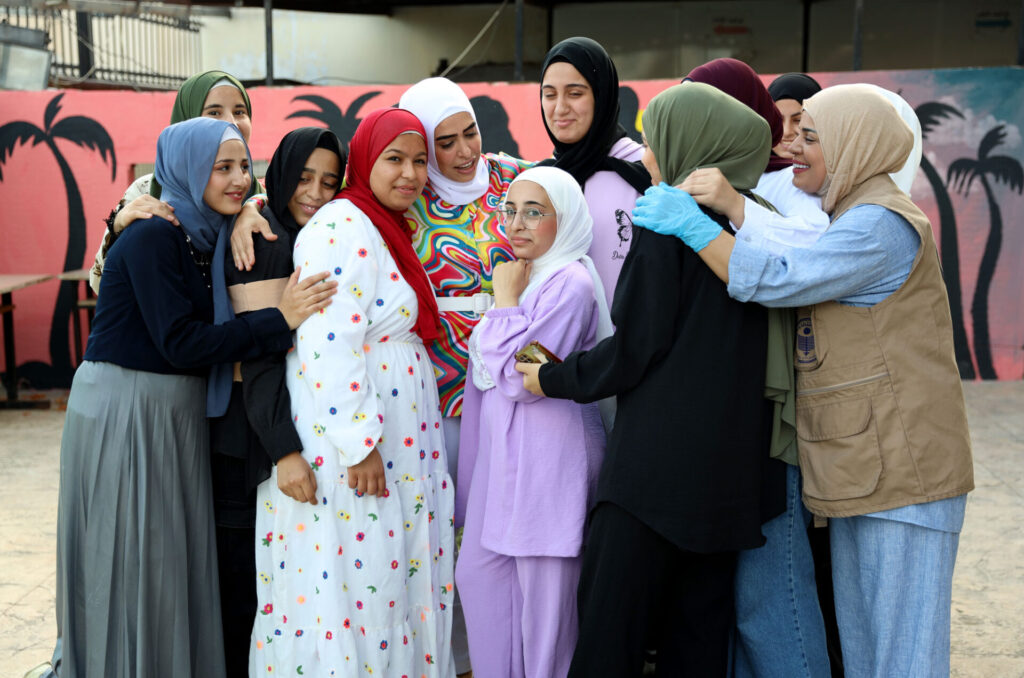EDUCATION
Carving a Better Future in Lebanon
Dec, 2022
The Anera education team is thrilled to form a partnership with Warch(ée) to provide a hands-on training program that will turn out a group of skilled young (women!) carpenters ready to work.
Tripoli, Lebanon is one of the world’s oldest continuously inhabited cities in the world. It is most famous for its historical citadel that was built in 1103, its delightful traditional Arabic sweets, and its bustling traditional souks (markets) that are brimming with locally produced goods. The city’s prominent woodworking industry is also a point of pride.
Men have traditionally dominated the woodworking field. But now some social change-makers are confronting gender stereotypes by providing high-quality vocational education classes geared just for women.
Warch(ée) is a Beirut-based organization founded by Lebanese architect Anastasia Elrouss to integrate women into the construction field. Despite the fact that the world is becoming more urbanized, especially in the Middle East, women are often excluded – implicitly or explicitly – from working in fields like construction, architecture, and engineering. Warch(ée) set out to change that reality. And the Anera education team is thrilled to form a partnership with Warch(ée) to provide a hands-on training program that will turn out a group of skilled young (women!) carpenters ready to work.
Anera and Warch(ée) started this program with the support of UNICEF and funding from Germany through the German Development Bank KfW. Twenty young women from Tripoli have joined the program.
"The collaboration between Warch(ée) and Anera was easy to forge, because we both focus on empowering young people in Lebanon and the Middle East in adverse contexts," says Elrouss.
The Anera team in Tripoli successfully reaches out thousands of youth every year to enroll them in a variety of vocational courses. This one, however, posed a special challenge.
Anera North Area Manager Ahlam Abu Baker explains that this was one of the few courses where they had to address the trainees' self-confidence and help them believe in themselves and their capacity to use the carpentry tools and equipment. "This course was a challenge for us and for the women as well," she says. “It was a swim against the stream of social norms, the patriarchy, and inherited self-doubt.”
Hala is a 21-year-old from Tripoli. Some members of her family and in her social environment tried to discourage her under the erroneous notion that these jobs were reserved for men. "It was something new. We had never seen this kind of course for girls," she says. Hala persevered and went to Anera's offices to register for the course, and is now part of Warch(ée)’s first training group with Anera.
"Don't let society prevent you from doing what you want to do. Don't answer to your environment. It's up to us to change mentalities. We are girls. And we can!"
Anera's youth and education programs have consistently made significant contributions to breaking gender stereotypes in the communities it serves. But this course is unique in that it is specifically tailored to women. Leen Ataya, Anera's education program manager, noted. "This specific carpentry vocational training is most certainly the first of its kind."
Having classes just for young women rather than co-ed classes is an encouraging factor to many participants and their families. Especially to those who come from conservative backgrounds. Women-only classes often transform into safe spaces where these young women can develop their interpersonal communication skills.
Nasab, 22, from Akkar and a graduate in social sciences from the Lebanese University, was searching for a job and struggling to choose a fulfilling career path. When she told her family that she was planning on enrolling in a woodworking course for women, her parents were surprised by her choice. Her mother advised her to go into "girls' jobs," like sewing or hairdressing. Her father worries about the danger of the machinery. But Nasab’s determination kept her on track.
"Our instructor doesn’t stop reminding us that we only need one muscle to do this job: our brain," says Nasab with a big smile. “We have to break the barriers."
This course has paved the way and is now an example for more and more vocational courses that challenge the status quo and defy traditional gender roles. The team at Anera is proud to partner with an organization like Warch(ée) that works to empower women. We are also grateful to UNICEF and the generous funding of Germany through the German Development Bank KfW for their ongoing support, which is giving young people in Lebanon new opportunities. Not only are we collectively supporting these young women in carving their paths to success, we are also contributing to the preservation of one of the oldest professions in the region and one of Lebanon’s treasures, the art of woodworking.

